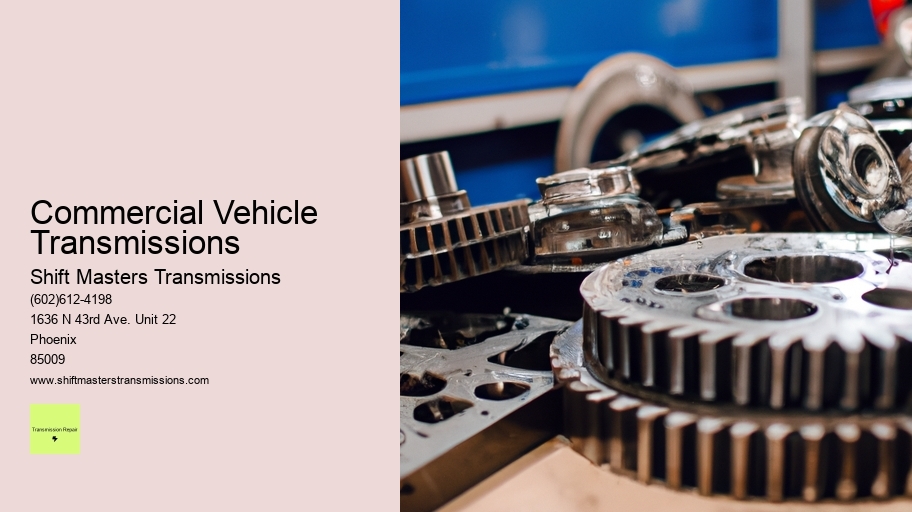

If any of these items are found to be faulty then they must be replaced immediately.
If you experience either of these symptoms, you should immediately take your car into a professional mechanic for inspection and repair if necessary before further damage occurs. Here are some of the most common issues and how to diagnose them:1. Getting the most out of your transmission can be a tricky task.
Additionally, depending on the condition of the engine or transmission, a rebuild may be more economical than purchasing a brand-new replacement.
What Are the Warning Signs of a Failing Transmission?
How to Identify Your Vehicle's Transmission Problems Early OnIdentifying your vehicle's transmission problems early on can save you time and money in the long run. Additionally, checking for any worn or damaged components such as cables, lines or hoses can help pinpoint possible issues. Look for reviews online and talk to friends or family who may have had similar experiences.
They may recommend cleaning the filter as well as flushing out old fluid and replacing it with new fluid if necessary.
If you notice any of these problems, take your car to a qualified mechanic immediately so they can check the system for further issues.
Rough Shifting – Uneven shifts or jerking motions could indicate that your transmission is not properly calibrated or lubricated. Look for experiences that are similar to your own needs and see what others have had to say about their experience with the shop in question. Additionally, consider the shop’s qualifications, experience, and customer service when making your choice.
Finally, consider upgrading to a higher-performance version if you intend on driving in conditions that require more power or control. If you are experiencing any of these issues, take your vehicle to an experienced mechanic as soon as possible so they can inspect it and determine whether or not you need to replace or repair components of your transmission before they become irreparable. Finally, using a trusted garage or workshop with up-to-date equipment can help ensure that your transmission repairs are done correctly and safely. Universal Joint (U-joint) Service
It is important to know the signs of a potential problem, such as slipping gears, strange noises, or leaks.
The secret to smoothly operating transmissions is often a combination of preventive maintenance and regular servicing.
Similarly, if your car takes longer than usual to change gears after accelerating from a stoplight, this could also signal an issue that needs attention right away. When it comes to deciding between rebuild or replace for your vehicle, it is important to weigh all of the factors. Additionally, be sure to have regular oil changes done so that any old or contaminated oil is replaced with fresh oil.
Additionally, use only genuine replacement parts whenever possible; inferior aftermarket products may fail prematurely and require additional repairs in the future.
They feature planetary gearsets that allow for automatic shifting without any manual input from the driver.
Using genuine manufacturer parts or high-quality aftermarket components can make all the difference when it comes to reliability. It can be costly and time-consuming to fix any errors that may occur during the process. All in all, by taking some extra time researching potential shops you can ensure you choose a reliable transmission repair shop that meets both your budget requirements while providing excellent service throughout your transaction!
Is it permissible to reconstruct a transmission?
The question of whether or not rebuilding a transmission is acceptable depends on the context. Depending on the age and condition of your vehicle, rebuilding may be necessary for efficient and reliable operation. If you have an older car that requires frequent repairs, then reconstruction may be a viable solution. On the other hand, if your vehicle is relatively new and in good condition, then it would likely be best to simply replace the transmission with a new one. Ultimately, the decision should be based on factors such as cost-effectiveness and long-term reliability.
Is it worth repairing a ruined transmission? This is an important question to consider before investing in the costly repairs. The answer depends on several factors, such as the age of your car, the estimated cost of repairs, and the availability of replacement parts.
If you have an older vehicle with a worn-out transmission, fixing it may not be feasible. In this case, replacing the entire unit may be the best option. On the other hand, if your car is relatively new and still under warranty, repairing it might save you money in the long run.
Can a transmission be repaired without being swapped? It is possible, depending on the severity of the damage. However, it can often be difficult to determine whether a transmission should be replaced or repaired without an experienced mechanic taking a look. Repairing a transmission may involve replacing certain parts, such as gaskets, seals, and filters. It could also include inspecting and cleaning components to ensure they are functioning properly. In some instances, repairs might entail reassembling components that have been removed for inspection or repair. Ultimately, if the damage is too extensive or irreparable then replacing the transmission may be inevitable.
It is often difficult to determine whether it is cheaper to repair or replace a transmission. In many cases, the cost of repairing an existing transmission may be less than purchasing a new one. However, this can depend on the age and condition of the current transmission as well as the availability and cost of parts. Additionally, if the transmission has suffered major damage, then replacing it may be more cost effective in the long run. Ultimately, it is important to consider all factors before making a decision about whether to repair or replace a transmission.